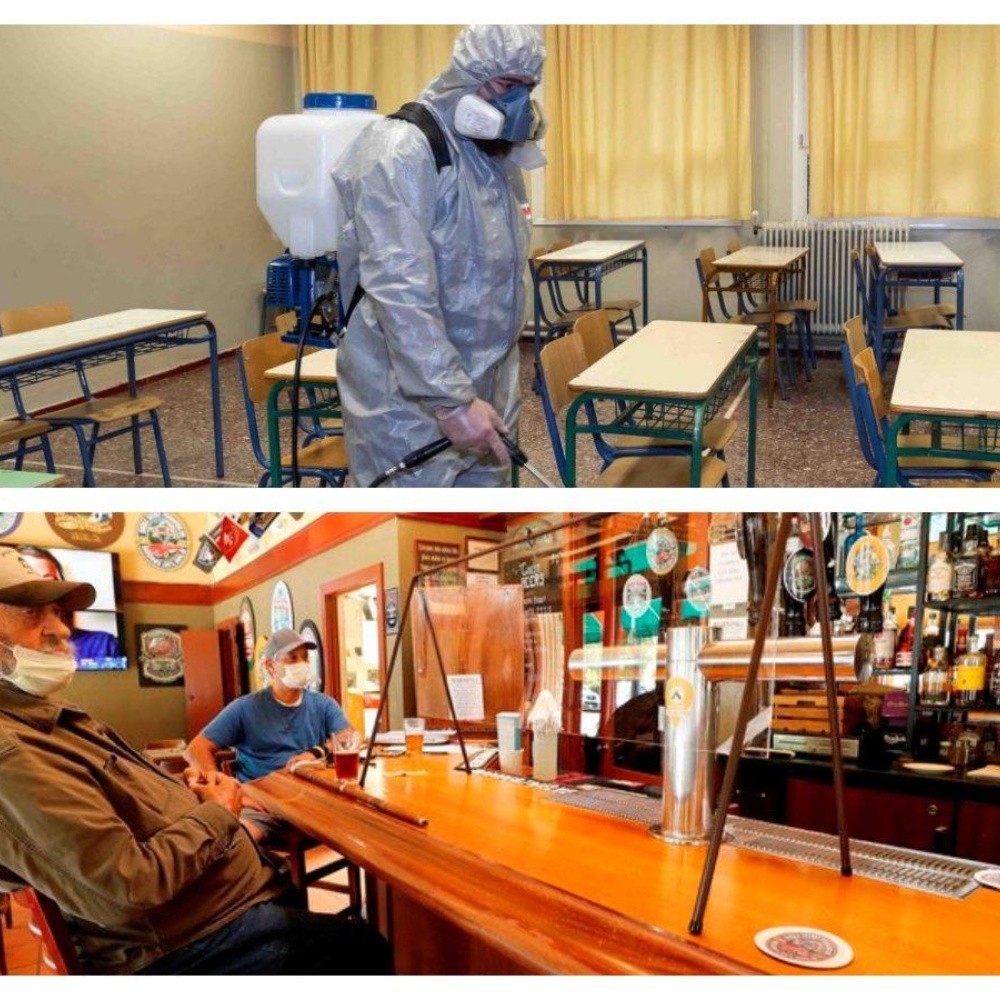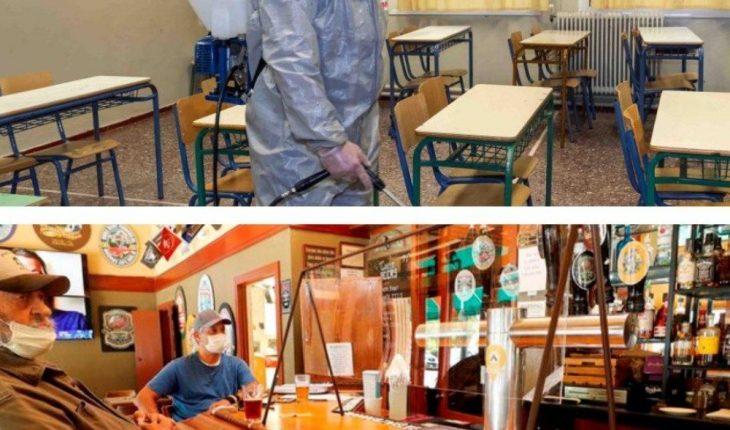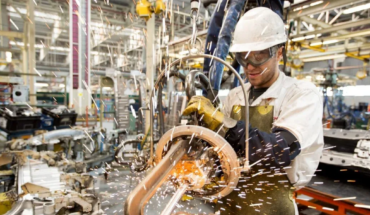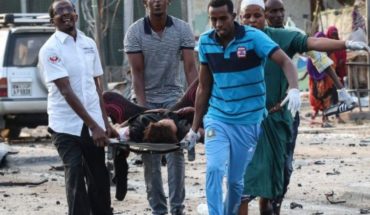
Providence– U.S. President Donald Trump insists that schools reopen this fall. Many parents, educators, doctors and economists want the same thing. But sending children back to classrooms could involve keeping places at high risk of contagion closed, such as bars and gyms. More and more public health experts are urged federal, state, and local authorities to reconsider how they are reopening the economy and prioritizing elementary and secondary schools, an effort that would likely require closing other facilities to help contain contagion and get children back to class in the best possible conditions.
Stay informed about what matters most to you
Get the most relevant news of the day in your email
Thank you for subscribing!
Check your inbox to confirm your email and start getting the latest news
Take advantage and take the next step
Get our news alerts so you don’t miss anything
Receive notifications
Enter your e-mail
Subscribe
Subscribing implies accepting the terms and conditions
You’re already subscribed to news alerts!
Now you can set up notifications from the bell
“We need to think about what our priorities are as a society, and some things might have to wait,” said Helen Jenkins, an infectious disease epidemiologist at Boston University. “I think these are tough decisions.” Schools are crucial for communities beyond basic education. They offer children friends, food and other support systems. The American Academy of Pediatrics strongly supports children’s physical return to classes. You may be interested: Naya Rivera, Glee actress, missing after going swimming with her sonThe centres are also a crucial piece to put the economy into place, said David Rothschild, economist at Microsoft Research.” It’s what allows many adults, especially low-income people, to return to work,” Rothschild explained. “There’s this huge domino effect in the short term by sending people back to school, something you couldn’t say the same way for bars and restaurants.” But if a community has a high contagion rate, public health experts point out that reopening classrooms would be risky, even if schools try to impose masks and follow social estrangement recommendations. You may be interested: China gives in and asks for reconciliation with the U.S. Hundreds of children and employees who have become COVID-19 in outbreaks associated with graduation ceremonies and summer camps in places like Missouri, Texas, Louisiana, Georgia, North Carolina, Tennessee, New York, and Florida. Organizers of at least one of the camps said they followed the recommendations of the Centers for Disease Control and Prevention.That’s why it’s so important, according to experts, to consider the community as a whole and not think of schools as closed ecosystems, oblivious to what the virus does outside its walls. Children are less likely than adults to become seriously ill from the new virus, and there is little evidence that children are driving contagion, said Jennifer Nuzzo, an epidemiologist for the COVID-19 Testing Initiative at Johns Hopkins University. Still, there is a risk that they may spread the virus to others, such as teachers or vulnerable people they live with.” It’s a reason to think about how to improve safety and reduce risk in teaching environments,” Nuzzo said. “Those measures and the decision to reopen schools must move forward before the most at-risk environments, such as bars, restaurants, gyms and other enclosed spaces “where adults are very close together and social estrangement is difficult to meet.” If contagions can be reduced in the wider community, he said, it will be safer to reopen schools.” We should prioritize reopening those public spaces that have known benefits and low risks,” Nuzzo said. “And we believe that schools are one of them.” Even before Trump’s pressure this week, Democrats and public health experts were already talking about the importance of children returning to schools. When Kansas Democratic Gov. Laura Kelly signed a decree last week imposing the use of masks, she told lawmakers it was because she wanted to reopen the classes. Michigan Gov. Gretchen Whitmer, Democrat, made similar comments when she banned service inside bars in some regions after identifying several outbreaks. And New Mexico Democratic Governor Michelle Lujan Grisham, he mentioned schools when he said there would be fines and more aggressive surveillance of the obligation to wear masks in the state.
Children and students in this state deserve a chance to go back to school,” Grisham said.
Republicans have also talked about it. Vice President Mike Pence, who visited Arizona last week, praised Republican Gov. Doug Doucey for closing bars, gyms and movie theaters. Pence related these measures to economic growth and send “children back to school.” White House adviser Kellyanne Conway told Fox News last week that schools are essential for people to get back to work.
Do you want to open the bars now or do you want to open schools and day care in a few weeks? I vote for the latter,” Conway said.
On Twitter and at an event at the White House, the president said this week without evidence that Democrats want to keep schools closed for political reasons, not health. In a call with governors Tuesday, Education Secretary Betsy DeVos said the country’s schools should “completely reopen and operate completely.” The Associated Press had access to a recording of the call. But groups of teachers and school leaders pointed out that the message does not help if it is not accompanied by careful re-opening plans and federal support, including additional money to pay for more cleaning, masking, and social estrangement measures. For now, schools aren’t getting what they need, said Dan Domenech, executive director of AASA, the Association of School Superintendents.” What we’re hearing is almost like a prologue to open schools at all costs,” Domenech said of DeVos’ statements.
When children get sick and when children die, I hope you can connect that with your recommendations.”
Health experts are confident that the conversation can remain focused on the specific details of how to open schools. Some are parents who have seen their children have problems with distance education. Nuzzo was able to buy a laptop for his seven-year-old son. Nuzzo’s mother, who has a Doctorate in child development, helped him with his homework.” We are incredibly fortunate compared to other people,” Nuzzo said. “And I’m really concerned about families who don’t have the ability to get involved with their children’s education at the level that distance education requires.”
I’m an epidemiologist, but I’m also a mom,” Nuzzo said.





